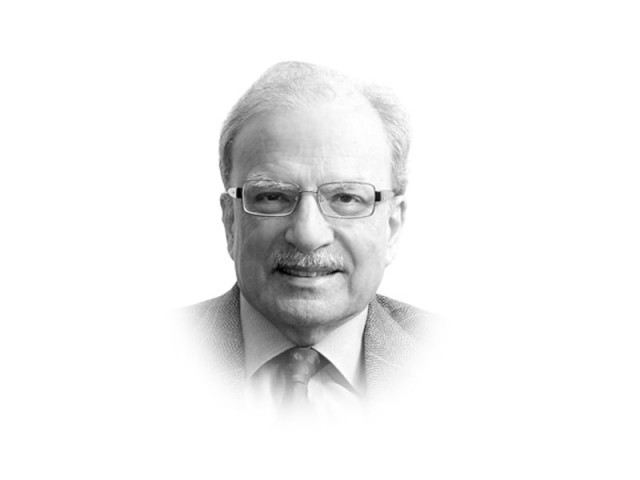Breakdown of the grand bargain — III
Why has the Muslim world led the movement to make established political order responsive to the wishes of citizenry.

In some countries such as Indonesia and Pakistan, democratic systems that had appeared off and on began to be consolidated. This went further in Indonesia than in Pakistan. The Indonesians have held two open and fair elections since the fall of Suharto and the country is now governed by an elected president and parliament that operates within an accepted democratic framework. The system now works to manage transition from one set of rulers to another. This is ultimately the test of a working democratic system. As discussed in an earlier article, even in an established democratic system such as the one India has operated with some success for several decades, the issue of transition remains unsettled. At least in the largest political organisation, the Congress Party, leadership has been passing from one generation to another.
This brings me to raise a couple of interesting questions the answers to which, in the absence of research —which will no doubt be carried out at some stage — can only be in the nature of speculation. Why has the Muslim world led the movement to make established political order responsive to the wishes and aspirations of the citizenry? Why have the people living in democratic systems come out on the streets and started to demand change? There cannot be any doubt that the ‘Arab street’ has inspired movements in India, Israel, Spain, Greece, Britain, even in New York’s Wall Street. As Nichloas Kulish of the The New York Times put it in a thoughtful article, the “consensus that had emerged after the 1991 collapse of the Soviet Union that liberal economics combined with democratic institutions represented the only path forward…has been shaken and broken by a seemingly endless crises.” That consensus was the main theme of Francis Fukuyama’s widely read book, The End of History and the Last Man. Disillusionment with western liberal democracy and capitalism is widespread not only in the developing world, but also in the parts of the world where these philosophies were developed and put into practice. Policy makers all over the world have been found wanting. They have been unable to cushion their people from the shocks the economic systems have delivered over the last several years. The real issue in India and in some of the other old democracies is the loss of confidence on the part of the electorate in the political system.
There are perhaps two reasons why the citizens of the Muslim world have led the way in demanding change. First, the autocratic systems in most countries in this part of the world kept their citizens at a distance much greater than was the case in established and democratic systems. The political orders in these nations were inherently unstable. They had to give way once the people found a way of getting organised and coming out in numbers that overwhelmed the security systems. Second, the first reaction to the ‘grand bargain’ that gave the West’s cover to the autocratic regimes took the form of religious upheaval. The rise of the al Qaeda and other like-minded groups may have drawn some recruits from the disgruntled but the vast number of the indignados — as the outraged and the disappointed are called in Spanish — could not possibly find much comfort in this form of Islamic revival. Solutions for them have to be found in the political and economic order that cannot be hijacked by the elite — even if the elite owe their economic and political positions to elections held within democratic frameworks. Given the turmoil and uncertainty, even within the established political and economic systems, the question arises as to what kind of models the Muslim world should follow as it seeks to bring about change?
There is a continuum among Muslim nations that has Turkey and Saudi Arabia occupying the two extremes. There are changes taking place even in these two countries that are poles apart. In late September King Abdullah promised to open up the political system a little when by 2015 women would be allowed to vote in municipal elections and also have the right to be appointed to the Advisory Council. However, even as this announcement was receiving some attention and restrained applause, a Saudi woman was sentenced to receive ten lashes. Her offense: she was driving her car. She was later pardoned by the King. Turkey, on other hand, was moving in the other direction. It had decided to dilute some of the westernisation and little bit of the secularism that had become the defining features of the system bequeathed by Kamal Ataturk. But it has preserved the secular basis of the Turkish state. In between these two extremes are dozens of countries that are attempting to find their political feet. Some of them such as Tunisia and Egypt, are working to develop new structures from scratch; some like Bangladesh, Indonesia and Pakistan are struggling to make their systems more egalitarian and representative; some such as Syria and Yemen are still engaged in using the security apparatus to keep the old order in place. In this kind of fluid situation, what would be the role of Islam in the political structures that have begun to evolve in the liberated parts of the Arab world? I will turn to this question in the article in this space next week.
Published in The Express Tribune, October 17th, 2011.














COMMENTS
Comments are moderated and generally will be posted if they are on-topic and not abusive.
For more information, please see our Comments FAQ